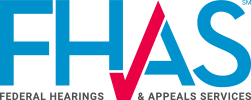For healthcare providers and payers working with independent dispute resolution entities (IDREs) under the No Surprises Act, the rules around what constitutes a conflict of interest remain ambiguous in some areas. The blurred boundaries make this an uncertain landscape that parties feel they must tread carefully to steer clear of missteps.
It is crucial for IDR entities to remain truly independent and impartial when health plans and providers turn to them to resolve payment disputes.
The federal rules are summarized as the following:
- The IDR entity itself cannot be a group health plan, health insurer, federal employee health plan carrier, healthcare provider, facility, or air ambulance provider.
- The IDR entity cannot operate as an affiliate or subsidiary of any of the types of organizations in #1.
- The IDR entity cannot be affiliated with or a subsidiary of a professional/trade association representing the organizations in #1.
- The IDR entity cannot have personnel, contractors, or subcontractors assigned to the case who have material relationships with either the health plan/insurer or the provider/facility that is party to the dispute.
The term “material relationship” is used in defining conflicts of interest for IDREs, but what constitutes a material relationship is not explicitly defined. A material relationship typically refers to one that is considered significant enough to potentially influence judgment or decision-making.
Examples of Material Relationships Include:
- Financial ties: Direct compensation, ownership interests, and investment relationships between the IDR entity and the parties in dispute.
- Close personal/familial ties: Immediate family members, spouses/domestic partners, or close friendships between IDR personnel and the conflicting parties.
- Recent prior employment/business relationships: IDR personnel having recently left employment or an advisory role with one of the parties within a certain timeframe (e.g., 1-2 years).
- Professional society/association leadership positions: IDR entity leadership holding positions in the same professional associations as the parties in dispute.
Key Takeaway
The abundance of caution in avoiding any relationship between the IDR entity and the disputing parties is leading to a lack of communication regarding what would be considered a material relationship.
How FHAS Prevents COI
Prior to working with FHAS, all staff have undergone COI training and attested to any potential conflicts. FHAS maintains conflicts of interest forms and attestations that staff must be complete prior to initiating any work. Additionally, assigned staff to a claim will not have any of the following:
- Financial ties: FHAS staff must disclose any financial ties to parties, and FHAS will not hire staff with any financial ties that can create a conflict
- Close personal/familial ties: FHAS will not utilize staff that has familial or relationship ties to the parties
- Recent prior employment/business relationships: FHAS will not hire personnel having recently left employment or an advisory role with one of the parties within the last year
- Professional society/association leadership positions: FHAS staff will not hold positions within any organizations associated with the parties.
The full guidance defining COI from CMS can be found here: Federal-IDR-Guidance-Disputing-Parties-March-2023.pdf

